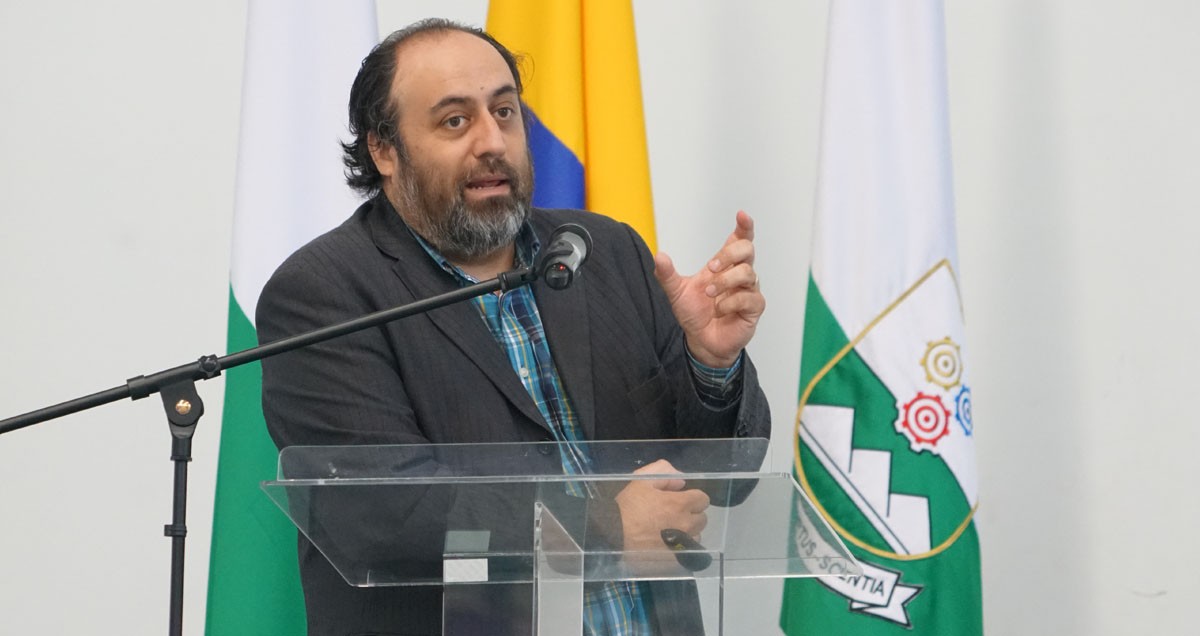El “Primer Encuentro de Prácticas Pedagógicas en torno al Lenguaje: Narrativas, experiencias y creación artística”, que se llevó a cabo en el Tecnológico de Antioquia, entre el 4 y 5 de octubre, tuvo como invitado internacional, al periodista, docente e investigador chileno Carlos del Valle Rojas.
En su conferencia: “El conflicto del Estado-Nación y el pueblo indígena en Chile: los desafíos de las prácticas para la paz”, a manera de síntesis, dijo que trató de situar: “Como el Estado en Chile y toda su institucionalidad, ha ido construyendo al indígena como un enemigo de su proyecto político-económico y, por lo tanto, en mi investigación lo que hice fue revisar como esa producción del enemigo va variando, va teniendo matices; en el Siglo XIX, por ejemplo, se trata de un bárbaro salvaje que hay que eliminar y, de hecho, se da el genocidio de los Mapuches en nuestro país; en el siglo XX observamos un énfasis hacia la producción, quitándole a los indígenas los territorios considerados más improductivos por el Estado; y en el siglo XXI, lo que vemos es una estrategia política-económica del Estado de transformar a los indígenas en sujetos productivos con políticas de empresarización y de emprendimiento”.
Descarga la nota haciendo clic en la imagen a la izquierda.
![]()
State-Indigenous conflict in Chile: A look from the TdeA
The "First meeting of pedagogical practices around language: narratives, experiences and artistic creation," which took place in the Tecnológico de Antioquia, between October 4 and 5, had as international guest, Chilean journalist, professor and researcher Carlos del Valle Rojas.
In his lecture: "The Conflict of the State-Nation and the indigenous people in Chile: the challenges of the practices for peace," as a synthesis, let me explain: "As the state in Chile and all its institutionality, has been creating the indigenous as an enemy of its political-economic project and, therefore, in my research what I did was to revise how that production of the enemy varies, it is having nuances; In the nineteenth century, for example, they are considered as savage barbarians to be eliminated and, in fact, the genocide of the Mapuches in our country happened; In the twentieth century we observed an emphasis on production, removing the indigenous territories considered quite unproductive by the State; And in the 21st century, what we see is a political-economic strategy of the State to transform the indigenous into productive subjects with policies of corporatization and entrepreneurship."







